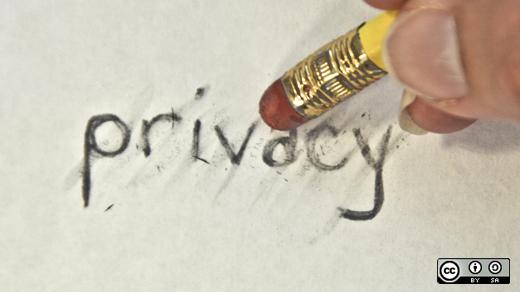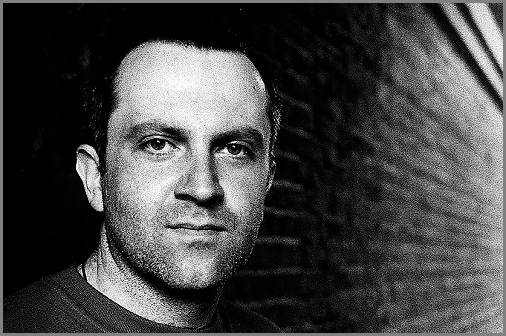You have no items in your cart. Want to get some nice things?
Go shopping
Lib Dem Hubert’s speech caused a stir when he pronounced that issues of online privacy and security would “come to define the 21st century”. Of course, he is right, but our lives are constructed around the need to watch one another. Prior to the Met we had London’s ‘watch-men’ to keep us safe. Nowadays we have CCTV as a commonplace urban necessity so we don’t have to. Even God is traditionally perceived as the omnipresent moral ‘observer’. However, at what point does the protective eye become a prying eye? The recent phone-tapping, email-hacking, room-bugging trend that has emerged through competitive journalism is an example of where privacy was ditched in favor of the public demand for private knowledge. Cyberspace allows us to look further, effortlessly, accessing previously unseen windows into how we browse; being online creates a virtual railroad that details a traceable train of thought.
In Wiley Cash’s This Dark Road to Mercy all characters are guilty of breaking the appropriate boundary of privacy: Wade appears first as a strange man watching a children’s home; Brady obtains the private message that Easter sent to her boyfriend Marcus; Easter goes through Wade’s things to take some money for her and Ruby. Although This Dark Road is ostensibly about keeping Ruby and Easter safe (particularly from Pruitt), what becomes increasingly apparent is that Ruby and Easter can be hidden but they can never be safe from the world outside, no matter how heavily one watches them.
There is a continued emphasis on bringing Easter and Ruby ‘home’ despite the fact that they have never had a home to return to. They are raised in a neglected home, with no food, three pieces of furniture and “mattresses on the floor that had mismatched sheets”. This is barely an inhabitable environment for children, let alone a homely one.
This absence of ‘home’ is further supported by the dangerous insecurity of other peoples houses: Brady Weller works for the appropriately titled ‘Safe at Home’ yet has previously run over a boy in his own front drive. The children’s home is almost too easy to gain access to, as Easter is approached by both Pruitt and Wade on the baseball field, and their bedroom window is where Easter meets her boyfriend Marcus and through which Easter and Ruby are lifted out by Wade. Couple in the mother’s death in her house and Wade’s mother’s murder in Wade’s childhood bedroom, and we are shown that nowhere is really safe. This message is hammered home in the final chapter where Wade sends Easter a wad of cash in the teddy bear: a final reminder that Easter needs some autonomous ‘security’.
Wade’s and Brady’s past also lead us to question their sincerity as vying guardians of Easter and Ruby. Wade kidnaps the girls supposedly to keep them safe yet it also provides the opportunity for him to alleviate the guilt he felt at being a part-time father. In turn, Brady’s role as the girls guardian stemmed from his need to do something good after his ‘accident’ led to his tenacity in tracking down the girls and his own attempt to alleviate past failures.
The only person taking real responsibility for their own safety seems to be Easter herself. Her uncertainty of Wade is reflected in her continually fluctuating opinion of him throughout, she calls Marcus at the first opportunity, and when she finds the money in Wade’s bag she lifts a wad for her and Ruby, “just in case”. However, these acts of defiance are coupled with acts of affection. She occasionally calls him Dad, and acts in his aid, such as when she soothes Ruby after Wade leaves his mothers covered in her blood.
Easter’s reservations are mimicked in our own reservations about Wade. Is he a dead-beat dad trying to turn it around? Or is he just a deadbeat? Wade’s ‘goodness’ or testament as a good or a bad character is never fully decided: the water never clears. This murky image stems from his absent narrative; through every other significant character we are provided a narrative viewpoint that defies or corroborates external perspectives.
Wade’s shadow is constructed through others and we are denied seeing the man himself. We cannot know that Wade did not kill his mother, even though Pruitt ends his narrative advancing on her with a baseball bat, we only see Wade leaving her house covered in blood. We assume with Pruitt’s previous record of violence that it is him, but we have no way of knowing. In turn, we never hear Wade’s side of the story with regard to Pruitt and his past; were Wade’s actions deliberate? Wade’s commitment to the girls seems incongruous with the observations of others: one must be untrue. In this way, Cash shows us again the limits of observation: without seeing into the mind of Wade as we are shown the minds of Easter and Brady and Pruitt, we can never be safe in our judgment of Wade.


About Claire Rodwell
Claire Rodwell is completing an internship at Litro this month. She is an Oxford based writer and an English finalist at St Anne's College. She has a passion for flash fiction, slam poetry and theatre design.




